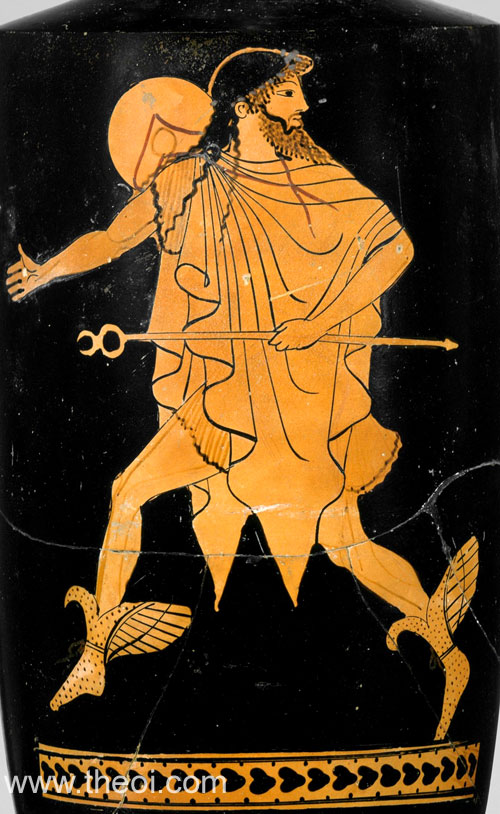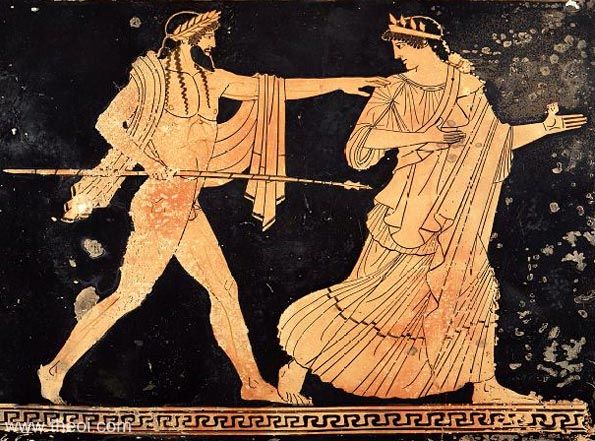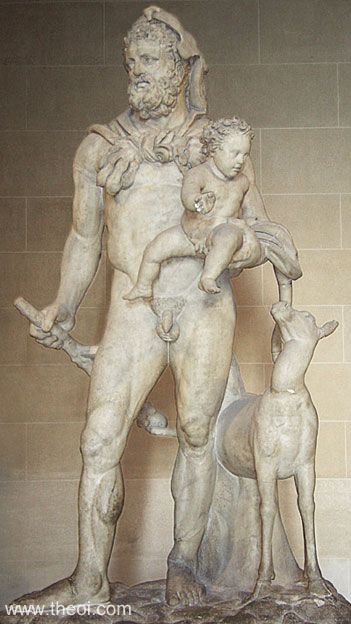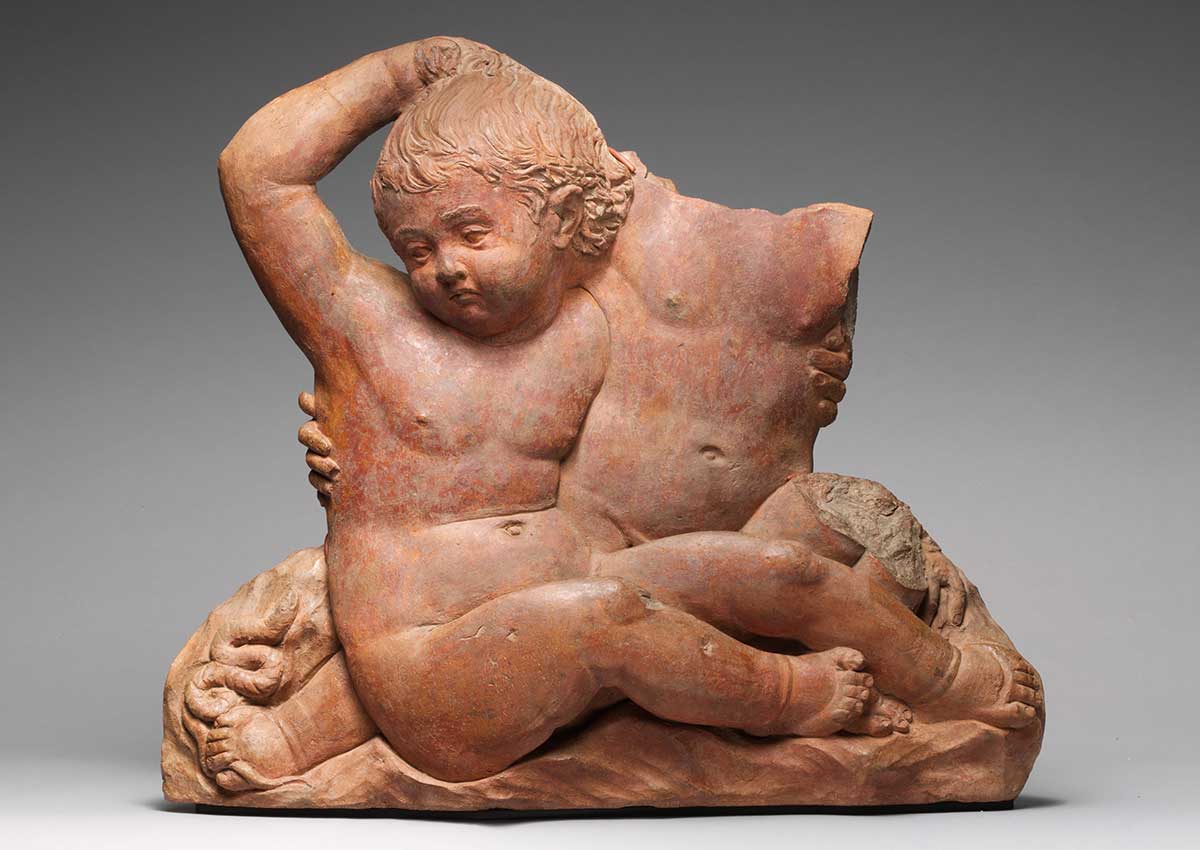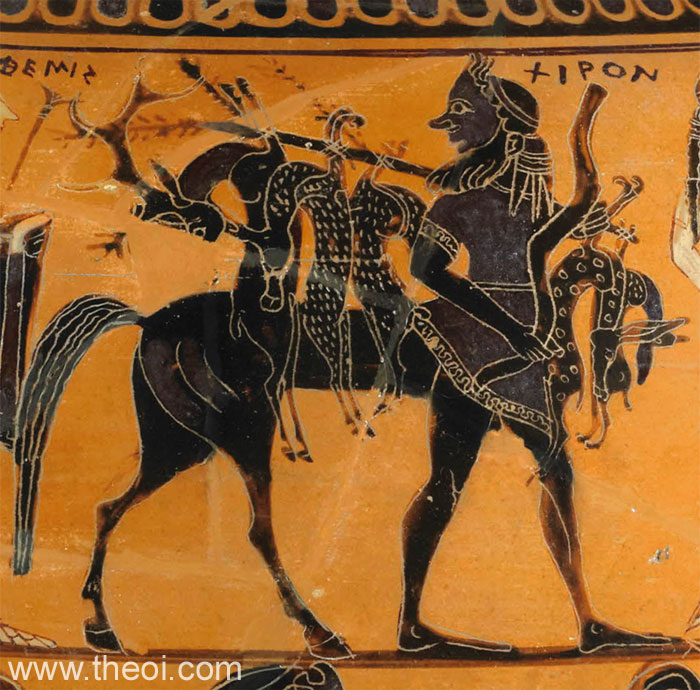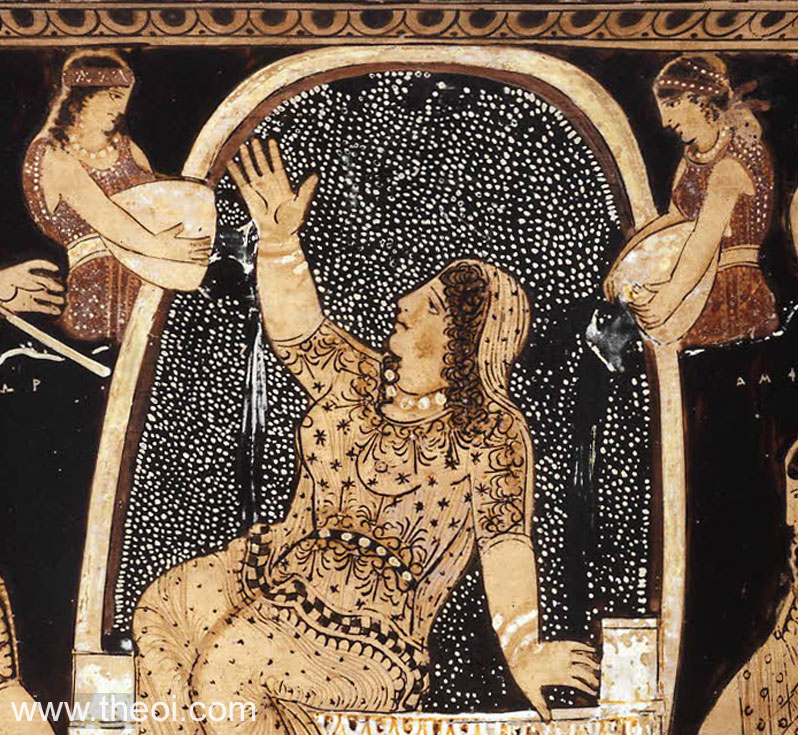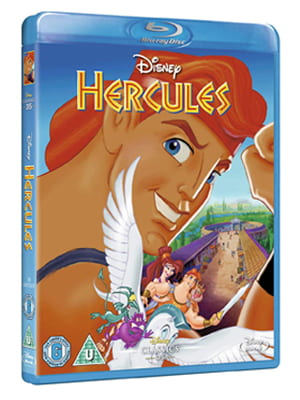One of the most famous names in Greek mythology is Hercules. Hercules was born a demi-god. His father was Zeus, and his mother was the mortal princess Alcmene. Zeus was married to Hera, the goddess of women, when he fathered Hercules to Alcmene. Zeus’s infidelity would enrage Hera which would ultimately lead Hercules to kill his wife and children.
Hera’s Vengeance
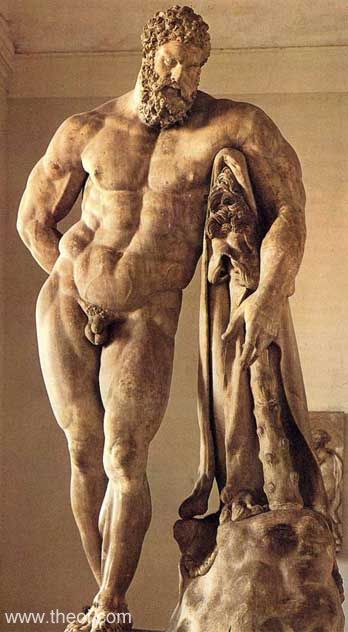 Alcmene gave birth to Hercules and raised him with her husband, Amphitryon. As Hercules was a demi-god, he was born with superhuman strength, which was evident within the first months of his life. Hera was vengeful and hated Hercules because he reminded Hera of her unfaithful husband, Zeus. Hera tried to kill Hercules as an infant, sending snakes into his crib to poison him. Hercules strangled the snakes that Hera had sent into his crib, but Hera’s vengeance would not stop there.
Alcmene gave birth to Hercules and raised him with her husband, Amphitryon. As Hercules was a demi-god, he was born with superhuman strength, which was evident within the first months of his life. Hera was vengeful and hated Hercules because he reminded Hera of her unfaithful husband, Zeus. Hera tried to kill Hercules as an infant, sending snakes into his crib to poison him. Hercules strangled the snakes that Hera had sent into his crib, but Hera’s vengeance would not stop there.
As Hercules grew into an adult, he married Megara and had many sons. Knowing how much Hercules loved his wife and children, Hera sent madness upon Hercules that caused him to kill his wife and children, taking away everything that Hercules loved.
Hercules Seeks Guidance
When Hercules regains his sensibility, he realizes what he has done to his family, and he is overcome with grief. Hercules turned to Apollo, a god who could offer healing, knowledge, and prophecy. Apollo told Hercules that he must serve Eurystheus, king of Tiryns, to make up for his wrongdoings.
The Twelve Labors
Hera, still determined to eradicate Hercules from the world, suggested to Eurystheus that he order Hercules to fulfill twelve impossible labors. Hera believed that Hercules would die attempting to complete these labors which would finally eradicate him from the world.
1. Slay the Nemean Lion. In the town of Nemea, there was an invincible lion that brought devastation and fear to the town. Hercules was ordered to slay the lion and bring back his skin. Hercules was able to use his brute strength and clever bravery to choke the lion to death and bring the skin to Eurystheus.
2. Slay the Lernean Hydra. Living in the swamp of the town of Lerna was a nine-headed serpent that would terrify the area. The hydra was venomous with one immortal head that could not be killed. Hercules set forth for Lerna with his nephew, Iolaus. With the help of Iolaus, Hercules was able to kill the nine-headed hydra.
3. Capture the Golden Hind. In Greece was the town of Ceryneia where a hind lived. This deer had golden horns and bronze hooves, and was sacred to Artemis, the goddess of hunting and animals; therefore, Hercules would not kill it. Instead, Hercules hunted the deer every day for a year. An opportunity to shoot the deer presented itself, and Hercules took it. On his way home, Hercules encountered Artemis and Apollo and had to explain his reason for apprehending the deer. Hercules told them of his servitude to Eurystheus. Artemis and Apollo agreed to let Hercules take the hind under the condition that Hercules brings the hind back unharmed.
4. Capture the Erymanthian Boar. Eurystheus ordered Hercules to bring him the wild boar from the mountain of Erymanthos. Hercules visited his friend and centaur, Pholos. The two ate and drank wine, which attracted other centaurs to the cave. Hercules killed the centaurs with his arrows, which would, unfortunately, be the downfall of Pholos. Pholos picked up an arrow and questioned how it was so lethal when he inadvertently dropped the poisoned arrow on his foot and killed himself. Hercules discovered Pholos, buried him, and began hunting the boar. Hercules was able to drive the fearful boar into snow where he captured the boar in a net and brought the boar to Eurystheus.
5. Clean the Stables of King Augeas. King Augeas had a stable which housed over 1,000 cattle. Hercules approached King Augeas and offered to clean the stables in one day and asked for a tenth of his cattle in return. King Augeas agreed to the terms, under the impression that Hercules would not be able to complete the task. With his quick wits and clever ingenuity, Hercules bore openings in the stables and rerouted the two main rivers, Alpheus and Peneus, to rush through the stables and flush out the waste. Learning that Hercules had been ordered to clean the stables by Eurystheus, King Augeas refused to pay Hercules with one-tenth of his cattle. Hercules took the matter to a judge where the judge determined Hercules should be rewarded for his completion. Hercules returned home where Eurystheus told him that his labor did not count as he had used the rivers to clean the stables, as well as accepted a reward for this labor.
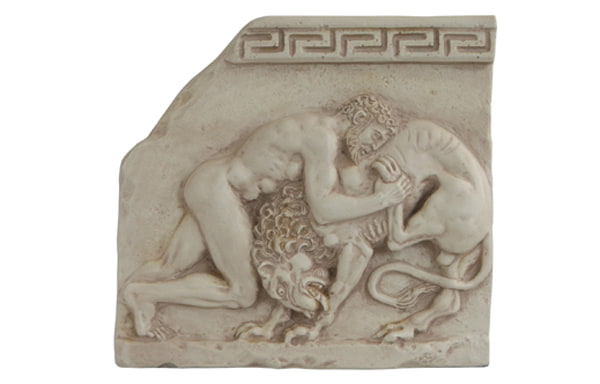
6. Defeat the Stymphalian Birds. A huge flock of birds was gathered at the town of Stymphalos, so Eurystheus ordered Hercules to drive the birds away. The birds were fierce man-eaters, so Hercules had to determine how to safely remove the birds from the town. Athena visited Hercules and gave him a noise-making clapper to help him scare the birds away. As the birds flew, Hercules shot them with his bow and arrow, while the remainder flew away from the town.
7. Capture the Cretan Bull. Hercules visited the city of Crete where King Minos granted Hercules permission to take this bull away. This bull was destroying the city and scaring the residents. Hercules was able to wrestle the bull to the ground and take him back to Eurystheus.
8. Bring Back the Mares of Diomedes. King Diomedes of Thrace trained mares in his village to eat human flesh. Hercules brought help with him to seize the mares. A companion of Hercules, Abderus, was killed by one of the mares. Hercules would bury Abderus and establish the city of Abdera in his honor. Hercules would kill King Diomedes, feed the horses to calm them, and bring the horses back to Eurystheus.
9. Obtain the Belt of Hippolyta. Queen Hippolyta was a leader of a tribe of warriors and had a leather belt that was given to her by Ares, god of war, as she was the best warrior among all the Amazons. Eurystheus wanted the belt as a gift for his daughter, Admete. When Hercules arrived at the land of the Amazons, Hippolyta came to Hercules and asked why he was there. Truthful, Hercules told Hippolyta that he needed her belt to take back to Eurystheus. Hippolyta agreed to let Hercules have the belt, but not before Hera, disguised as an Amazon warrior, told the tribe that Hercules was there to take Hippolyta. The tribe became apprehensive and dressed in armor as they confronted Hercules. Hercules saw their armor and weapons and assumed Hippolyta had sent her tribe to kill him, so Hercules killed Hippolyta and returned with her belt.
10. Obtain the Cattle of Geryon. Hercules had to travel to the island of Erytheia to retrieve the cattle. Along his way, he killed many beasts in order to locate the cattle. Once he located the cattle and began the journey home, bulls within the cattle got loose. Hercules would have to abandon the herd to find the ones that had run away. Hercules finally gathered the herd and took them to Eurystheus who sacrificed the herd of cattle to Hera.
11. Bring the Golden Apples of Hesperides. Eurystheus had originally given Hercules ten labors to complete, but as two of them were disqualified by Eurystheus, he gave Hercules two more labors to complete. In this labor, Hercules was to steal apples from the garden of Hesperides. Hercules traveled the world in search of the apples and, at the advice of Prometheus, was told to ask Atlas to steal the apples. Hercules held up the heavens and earth while Atlas stole the apples. Atlas requested to take the apples to Eurystheus, and Hercules agreed, to which he asked Atlas to hold the heavens and earth while he adjusted his garments. When Atlas took the heavens and earth back onto his shoulders, Hercules left and returned to Eurystheus to deliver the golden apples.
12. Capture Cerberus. The twelfth and final task was to capture the beast, Cerberus. Cerberus was a three-headed dog that guarded the gates of the underworld to keep the living world from entering. Knowing that he could not enter the underworld through this entrance, Hercules traveled through a deep cave to enter the underworld. Hercules battled many beasts and monsters throughout the underworld until he reached Hades. Hercules asked Hades if he could take the Cerberus to the surface. Hades agreed, only if Hercules could restrain the beat with his bare hands and no weapons. Hercules was able to subdue the Cerberus and take him to Eurystheus, who demanded he return the Cerberus to the underworld.
